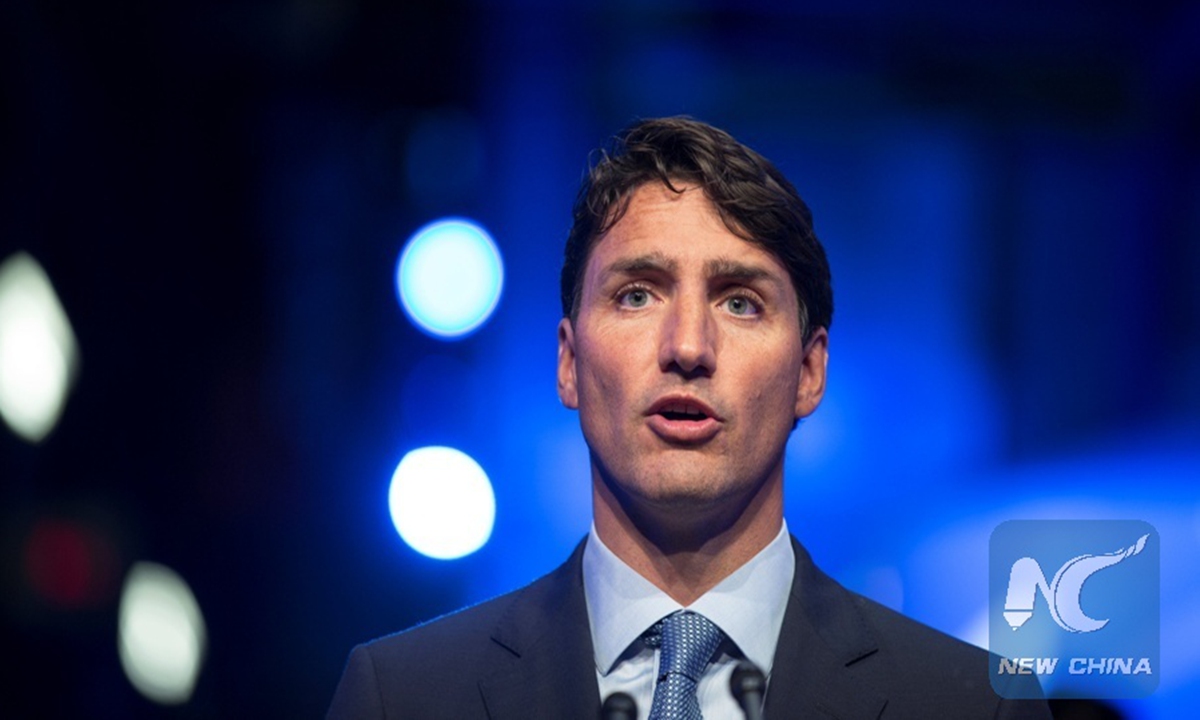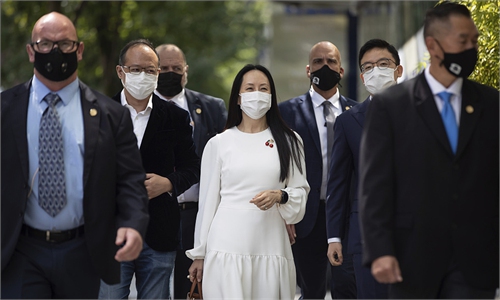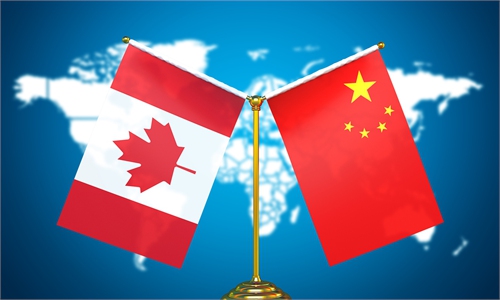
Canada's Prime Minister Justin Trudeau answers questions from the media in Montreal, Quebec, Canada, August 8, 2018. Photo: Xinhua
The case of Huawei Chief Financial Officer Meng Wanzhou has long been an issue that has hindered the development of China-Canada relations. Now that Meng has returned to China, it is indeed an opportunity for both sides to calmly think about their bilateral ties, which, however, will not be so easy to restore.Meng's case was only a fuse, instead of a fundamental reason, that sparked the downslide in China-Canada relations. More essentially, the US' influence of China-Canada ties has been more obvious in recent years. This has led to disputes in issues such as ideology, human rights and security between Beijing and Ottawa. Therefore, the resolve of Meng's case is a chance for China and Canada to rethink the essential issues of their bilateral relations.
Two Canadians, Michael Kovrig and Michael Spavor, confessed their guilt for crimes they committed in China and were released on bail for medical reasons before departing China on a plane to Canada on Friday. However, Canadian Foreign Minister Marc Garneau said on Sunday that the Canadian government is "under no illusions" when approaching a normalization of relations with China, and Canada would challenge China on its treatment of Uygurs, Tibetans and Hong Kong.
Meng's case truly soured China-Canada relations. But this is not the only reason why Ottawa provoked Beijing on these issues. On the one hand, Ottawa has been facing pressure from Washington on its China policy. Canada may have made a choice to meet the US demands of its allies, trying to maintain a highly consistent position with Washington.
On the other hand, Canada and China have differences in ideology, human rights and governance systems. Canada's attitude toward China, be it in the political circle or among the general public, has worsened in recent years. This was not entirely due to the Meng case alone.
The US, UK, and Australia have recently formed a trilateral security partnership "AUKUS." Canada, as a member of the Five Eyes alliance, was excluded. Some analysts believe it is because Ottawa did not act tough enough against China. The exclusion of Canada proves that it has drifted away further from other US allies due to its China policy.
Among the Five Eyes alliance, New Zealand is also not included in the AUKUS. New Zealand is also at odds with the US and Australia over its policy toward China, especially on the issue of Huawei's 5G technology. Likewise, the Liberal Party of Canada has shown relative restraint with its China policy. This could be seen as a weak link for the US and its alliance, so Washington is now putting more pressure on Canada and New Zealand by leaving them behind and forming a new cooperation mechanism with the UK and Australia.
After the recent reelection of Canadian Prime Minister Justin Trudeau, what the new Liberal government's China policy will look like depends on both the Canadian government's will and ability.
Yet the Liberal Party is relatively restrained when it comes to its China policy, compared to the Conservative Party. Earlier this year, Canada's parliament passed a non-binding motion on China's treatment of the Uygur Muslim minority. But Trudeau and his cabinet abstained from the vote. This could be a signal. In terms of Huawei's 5G, Canada is the only member of the Five Eyes alliance that has not formally barred or restricted Huawei from its 5G networks. So it seems that the Liberal Party administration does not want to totally jeopardize the relationship with China.
In terms of ability, the Liberal Party is still a minority government. This means it will still be constrained by the opposition party in many aspects. This clearly includes its China policy. It may not have too much freedom to work on improving China-Canada relations. Meanwhile, the Biden administration will focus more on the US alliance. And Washington will definitely have more demands on Ottawa.
China-Canada trade ties may improve. However, the checks and balances from Canada's domestic issues and Washington's will may make it difficult for the two countries' relations to return to the old days.
The author is a research fellow with the Center for Canadian Studies, Guangdong University of Foreign Studies. opinion@globaltimes.com.cn



